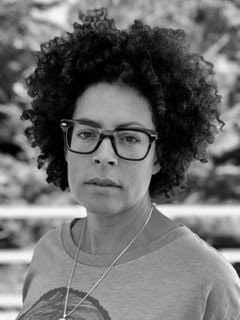it’s a drunkintheafternoon kind of day
wrung out acronyms come up on my keyboard
instead of my sister’s name
it’s a drunkintheafternoon kind of day
wrung out acronyms come up on my keyboard
instead of my sister’s name
this is the place of the abbreviated form
shortened breath shortened deaths short cuts to belonging
as if we could ever hold
in one phrase the anger the pain the tired of the four
for repatriation for justice for equity for becoming
nothing beneath my fingers
a void of modernity autocorrects my anguish
in case i wasn’t watching paying attention
seeing there are mountains between us
i am afraid
one day i will wake up and you will have traveled on
ceased refusing acronyms statistics steps healing
blind bound for another becoming
where there is no need for a bridge between
where you believe your love can take you
and cement blocks over the chasm of their hunger
i would gladly rid you of this last addiction
cut it out of your flesh or his
watch days go by on a grid
for a guarantee of your safety
match my emptiness to your own
for the sake of sisterhood
instead i sit with strangers
on big water dreaming
of our old age
where
rheumatic
we stumble together in step this time
othermothers’ prayers woven into our cedar and salt water
Author’s statement:
for my sister was written in 2015, when the first phase of the public inquiry into MMIWG2S began. I wrote it in the context of the announcement, and in the face of the constant, unshakeable fear that my sister, too, would be subsumed and lost in a tide of violence. We live on opposite sides of this geopolitical space some people call Canada. My sister was involved, on and off for years, in a relationship I saw as toxic, and from which she couldn’t seem to extricate herself. I often thought, condescendingly, that she didn’t want to. My gauge for when things were especially turbulent in her life was her absence, her silence. I wouldn’t hear from her for months, once for years. I’m not sure if she grew tired of my lecturing, or if she forgot I was here for periods of time, or if I gave up trying to reach her, or if it even mattered why. I couldn’t talk to her at these times, so I wrote to her. I wrote as two people. I wrote about us, and the legacies of living with others’ definitions of us, in a dissociated voice. This voice tries to capture what it feels like to always exist outside of yourself. In my other voice is my fear for her, and a more selfish fear that she will leave me alone with no one else to fully understand my dissociation, and maybe to live it through, vicariously.
We are exposed in truth-telling, as we are in poetry writing. for my sister speaks to feeling powerless when faced with a tide of lateral violence, where what we believe we want most—belonging, acceptance, escape, partnership—can also kill us. It also asks what happens to us that makes us capable of the violence we do to ourselves, and to each other. Reconciliation is predicated upon reparations, and this poem imagines repair as impossible when seen as restoration. It offers, instead, the reimagining of relationships as futurity.
The poem remains relevant as the inquiry is, and has been, plagued by delays and controversial leadership issues that reflect a litany of bureaucratic incompetence, ongoing systemic racism and persistent disregard for Indigenous womxn’s and girl’s lives. In it’s wake, the violence continues.
—Charlotte Henay
Learn more about Turtle Island Responds














